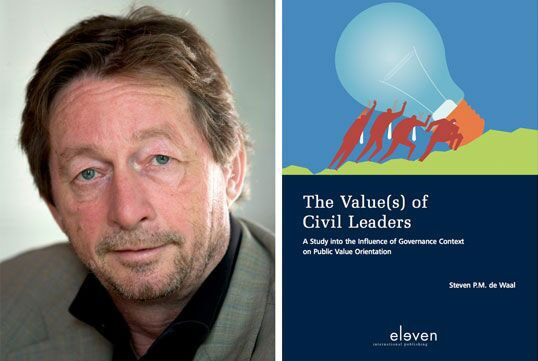Maatschappelijk leiderschapUitgelicht
The Corona Crisis and Civil Leadership
Civil Leadership is now showing and necessary

A real life test and challenge to leadership
The crisis due to the rise and spread worldwide of a menacing and killing Corona virus now has all our attention, day-to-day. Is it already here, with me, my city and my neigbourhood? Will it damage my life and body further, while it is already changing my family life and my work? These are the main and urgent questions we are now worried about and rightly so. But, like every crisis, and especially this menacing one, it is also a real life test and challenge to persons and their leadership and also to us collectively, as a society, a nation and in our citizenship to all other people around us, like our neigbourhoods, associations, worksettings and families. This test is now going on in real life. Everyday we can observe the characteristics of the current social and public leadership and of the collective attitude and actions we take and talk about. Some of them are hopeful, some are not. We now learn to know, the hard way and in very extreme circumstances, the strengths and weaknesses of our institutions, our economy and our civil society.
The Value of Civil Leaders
For me, it is also a very serious test of my thinking about the need of civil leadership, as was the topic of my dissertation in 2014: ‘The Value(s) of Civil Leaders’. This research was based on the assumption that we need leadership from a private context (distinguished were for-profit organizations, non-profit organizations and informal active citizenship) to bring the public cause further and to realize public value. Of course it went back to my preoccupation with social entrepreneurship and active citizenship, as is still the main mission of the Public SPACE Foundation as a private thinktank. At that time this assumption was certainly substantiated. I investigated many of these civil leaders, who had personally realized public value. Among them were CEO’s of a building company (who publicly stood out for integrity), a chain of hotels (who realized the rebuilding of many neglected monuments) and a software company (who helped youth without work), but also active citizens, like a reverend in Rotterdam (who helped drugs addicts) and, of course, many executives from public organizations, like in health care and education who realized a revolutionary change because of a necessary adaptation to the difficult circumstances they saw of their pupils, patients etc.
“… showing real leadership in breaking through routines, rules from the past or passive or bureaucratic behaviours …”
Characteristics of Civil Leaders
The main characteristics of civil leaders I found in this study were:
- Civil leaders really are a ‘breed of their own’ in having a passion for the public cause they see is necessary on the one side and showing real leadership in breaking through routines, rules from the past or passive or bureaucratic behaviours on the other;
- Their leadership comes from a personal drive and their personal passion for the public cause and is not based on their formal position or on formal requirements. They do something good because they want and need to do it personally, not because they are obliged, rewarded or legally obliged.
- They know how to explain to the broader public why they do these strange and new things, that the public is not used to and has many questions about. So they know how to restore trust in their actions. They do that sometimes even in competition with politicians or public responsible administrators, who feel threatened in their position because of these good (!), but unknown and new social initiatives
Civil Leadership is now showing and necessary
In the current answers to the corona crisis I see the same kind of leadership that really helps the people in these trying circumstances. Like citizens acting in food supply or visiting old people in their homes to comfort them. Or shopkeepers in opening their supplies for all kinds of people who are now at home and sometimes don’t even have money to take care of themselves. And of course we can now see this kind of leadership in all layers of public organizations, like hospitals, primary schools, childcare and social housing companies.
Because of these observations and examples in these difficult circumstances that are totally new and often threatening to everyone, I think we can now say that civil leadership helps us enormously. We see this civil leadership from all three private governance contexts of commercial companies, public and nonprofit organizations and informal citizens. This crisis shows us that this civil leadership is there. For the many who didn’t know it was already there and followed the mostly routine neglecting of it, it kind of ‘pops-up’ out of nowhere and it now shows itself. It also shows that it is certainly necessary next to the, hopefully stable, public leadership of state and government, like that of political executives and administrators, who have a different role, position and resources to deal with.
Civil leadership is now very welcome and very helpful for many people. I hope many more see this and learn from it, especially to value, keep and stimulate it, in attitude, in institutional space, in partnership with government and economy, after we have come out of this enormous crisis. Observe and acknowledge it with me, all the best and stay healthy!


